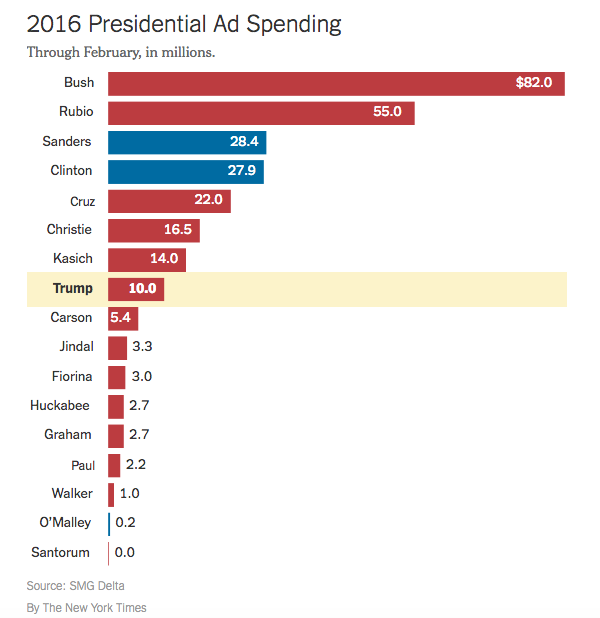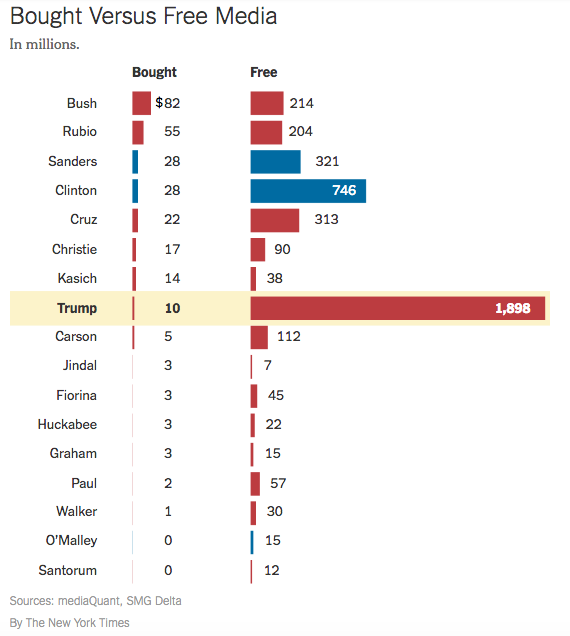By Kelly Carlson
Free media consists of traditional and social media. Traditional media includes television, radio, and print, such newspapers and magazines. Social media includes platforms like Instagram, Facebook, Twitter, and Snapchat. Today the advantages of free media have been a hot topic because the current presidential candidates have been taking more advantage of free media than advertising.
Free Media vs Advertising
A company’s exposure is essential, and there are two options: free media and advertising. Both have benefits. However, free media helps control the message and has a further reach than advertisement. Free media is able to control a message through traditional media, and social media is the tool used to further the message’s reach [2]. Free media’s successfulness is evident in this year’s presidential election. Donald Trump generated up to $400 million in free media last month and has used up to $2 billion worth of media attention overall. He has had one of the smallest campaign budgets in this election [1].
The above charts reveal that free media works. Hilary Clinton, Donald Trump, and Bernie Sanders have spent the most on free media, and have been the most talked about candidates, with Clinton and Trump clinching their respective party’s nomination [1].
Comparing these results to the days of George W. Bush reveals further that the world is moving towards free media rather than advertising, which used to be the guarantee of a candidates’ core group of supporters voting for them [3]. There was more of a direct correlation between how much money was spent on advertising to how well one did in an election, however new data shows free media is more effective and with a further reach to bring out core and new supporters [3].
The obvious choice between free media and advertising is free media.
[1] Confessore, Nicholas, Yourish, Karen. "$2 Billion Worth of Free Media for Donald Trump." The New York Times. The New York Times, 16 Mar. 2016. Web. 15 Oct. 2016.
[2] Vargas, Steven. "Panel Speaks about Social Media in Election | Daily Trojan." Daily Trojan RSS2. University of Southern California, 12 Oct. 2016. Web. 15 Oct. 2016.
[3] Spenkuch, Jjrg L., and David Toniatti. "Political Advertising and Election Outcomes." SSRN Electronic Journal SSRN Journal (n.d.): n. pag. Northwestern University, Apr. 2016. Web. 15 Oct. 2016.


